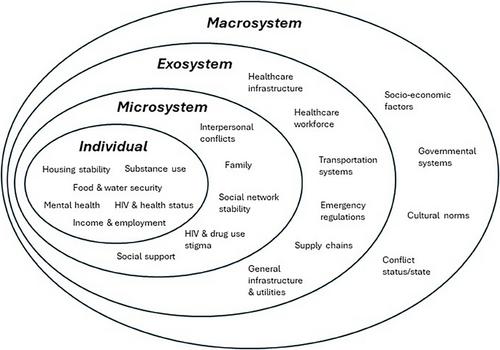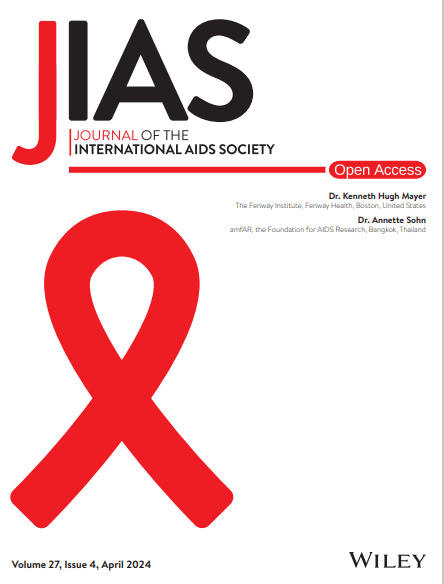Russia's invasion of Ukraine in February 2022 has severely impacted the healthcare system, including the provision of HIV care. The ongoing war is a human-caused mass trauma, a severe ecological and psychosocial disruption that greatly exceeds the coping capacity of the community. The bioecological model of mass trauma builds on Bronfenbrenner's concept of interaction between nested systems to argue that social context determines the impact of life events on the individual and how an individual responds. This paper uses the bioecological model of mass trauma to explore the impact of Russia's aggression against Ukraine and the ongoing war on HIV-positive people who use drugs in Ukraine, a particularly vulnerable population that may be negatively affected by disruptions to social networks, healthcare infrastructure and economic conditions caused by mass trauma.
Data were collected between September and November 2022. A convenience sample of 18 HIV-positive people who use drugs were recruited from community organizations that work with people living with HIV, drug treatment programmes, and HIV clinics through direct recruitment and participant referral. A total of nine men and nine women were recruited; the age ranged from 33 to 62 years old (mean = 46.44). Participants completed a single interview that explored how the war had affected their daily lives and access to HIV care and other medical services; their relationships with healthcare providers and social workers; and medication access, supply and adherence. Data were analysed using the Framework Method for thematic analysis.
The war had a profound impact on the social, emotional and financial support networks of participants. Changes in social networks, coupled with limited job opportunities and rising prices, intensified financial difficulties for participants. Relocating to different regions of Ukraine, staying at somebody else's home, and losing connections with social workers impacted medication adherence and created lengthy treatment gaps. Participants also experienced a decreased supply of antiretroviral therapy, concerns about accessing medication for opioid use disorder, and overwhelming fears associated with the war, which overshadowed their HIV-related health concerns and negatively impacted medication adherence.
Our analysis reveals the complex impact of war on social networks and healthcare access. Maintaining support networks and competent healthcare providers will be essential amid the ongoing war.



